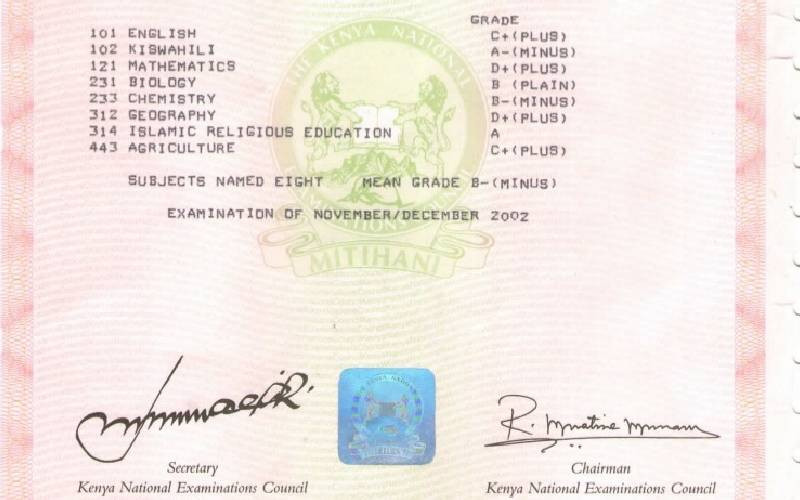
The Ministry of Education has announced a policy shift that will require Kenya Certificate of Secondary Education (KCSE) certificates to be collected from sub-county education offices rather than schools. This move aims to prevent school principals from unlawfully withholding the certificates over unpaid school fees.
Education Cabinet Secretary Julius Ogamba revealed the new directive while addressing Members of Parliament, emphasizing that the government seeks to end the long-standing issue of schools refusing to release students’ academic documents. Despite multiple government directives, many principals continue to hold onto certificates, affecting students’ academic and career progression.
Government Crackdown on Withheld Certificates
Amid growing pressure from legislators, the Education CS ordered all schools to immediately release any Kenya National Examinations Council (KNEC) certificates—including both KCPE and KCSE—that have been withheld due to fee arrears. Speaking on Monday, March 17, Ogamba condemned the practice, stating that schools have no legal right to withhold student certificates.
“No student should be denied access to their certificates due to financial difficulties. This is an illegal practice that must end,” he asserted.
To enforce compliance, county education directors have been instructed to investigate and submit reports within 14 days regarding the status of withheld certificates. School principals and headteachers who fail to comply face stern action from the ministry.
Will This Directive Be Enforced Effectively?
Despite Ogamba’s firm stance, MPs raised concerns over the implementation of this policy, citing previous unheeded directives by former education ministers.
“What makes this directive different from past ones that were never enforced?” asked Tinderet MP Julius Melly, who chairs the Education Committee.
School heads have justified withholding certificates by highlighting that schools are owed over Ksh 20 billion in unpaid fees. The financial strain, they argue, affects the operation of institutions and limits resources available for other students.
Previous Attempts to Address the Issue
In 2019, then-Education CS George Magoha proposed a selective approach where only students genuinely unable to pay would have their certificates released unconditionally. He even suggested listing defaulters with Credit Reference Bureaus (CRBs) to enforce payments. However, MPs at the time rejected this proposal, terming it punitive and unfair to struggling families.
It remains unclear whether the new certificate issuance policy will extend to students under the Competency-Based Curriculum (CBC), who are set to receive certificates at the end of junior secondary (Grade 9) and senior secondary (Grade 12).
Impact on Students and Parents
For years, students and parents have struggled due to withheld certificates, preventing learners from advancing their education or securing employment. The Teachers Service Commission (TSC) Chief Executive Officer, Nancy Macharia, has also previously issued directives urging school heads to release these crucial documents.
The government reiterates its commitment to ensuring that all students receive equal opportunities regardless of their financial background. With the new policy in place, many students who have waited for years to receive their certificates can finally move forward with their education and careers.
However, school administrators argue that addressing fee arrears remains a critical challenge. Balancing school finances while adhering to government directives will be key to the success of this policy shift.
The coming weeks will determine whether this latest directive will finally resolve the long-standing issue of withheld certificates or face the same resistance as previous attempts.
